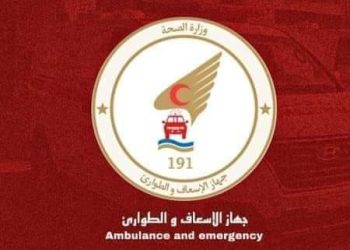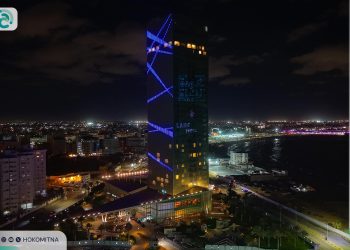Speaking for about an hour at the Government Communication Forum, within the question-and-answer segment called ‘‘The Prime Minister Answers’’, which was held as part of the activities of the Tripoli Media Days yesterday, Tripoli based Libyan Prime Minister Abdel Hamid Aldabaiba covered a wide variety of points. Here is a brief summary of the Q&A session.
Russia
Asked to comment on recent events in Syria and Libya involving Russia, Aldabaiba said:
- We will not accept the entry of foreign forces into Libya. We will fight anyone who enters Libya without permission.
- We have approached Russia regarding allegations of transferring weapons and military equipment from Syria to Libya.
- We refuse to drag Libya into an arena for international conflicts, and whoever wants to intervene militarily we will face.
- We summoned the Russian ambassador and asked him about the statement of the Russian embassy in Libya, regarding the warning of its citizens against traveling to Libya.
- We caught a Russian tourist in Libya after he was suspected of committing some security acts, as well as committing immoral acts, and we found some security information on his phone.
Eastern based construction without oversight agencies
- Asked why development projects seem to be progressing at a faster rate in the Hafter controlled eastern Libya, Aldabaiba said he was happy with any project development anywhere in Libya. However, project development must pass through the oversight agencies. He said eastern-based projects do not pass through oversight agencies.
- There is a special institution for reconstruction that came to me and presented me with a paper from the Speaker of the House of Representatives (Ageela Saleh), saying that it does not belong to the Audit Bureau, and I told them, “Throw it in the garbage”, he revealed
- Work and development must be conditional, and the state needs regulatory bodies.
- As for the bodies that are building projects in some cities in Libya (Sirte and the east of Libya), they do not pass through the regulatory bodies, and this is a very big defect.
- There are funds that are disbursed directly without (oversight) control by some agencies, and this is what we disagree with them about.
Fighting corruption
- On a question on what he was doing to fight corruption, Aldabaiba said he had ministers stopped by the Attorney General. I will not support anyone who engages in corruption, he insisted. There are three agencies fighting corruption, namely the Attorney General, the Audit Bureau and the Anti-Corruption Commission. Corruption is a culture that needs a societal effort to end it, he explained.
A hand in the removal of former CBL Governor El-Kaber?
- On the accusation that he had a hand in removing CBL Governor Sadik El-Kaber, Aldabaiba said El-Kaber was, and still is, his friend.
- He refuted that he had participate in El-Kaber’s removal. However, he said that El-Kaber had followed unbalanced policies, giving money to entities that are not subject to administrative control.
- Aldabaiba said El-Kaber had usurped the powers of the government. This was not within his authority. El-Kaber had made decisions as to who to give money to and who not. When he gave money to parties (eastern Libya) of over LD 40 billion in one year – this rang the alarm bells on the whole position of the CBL Governor and not just on El-Kaber himself.
- Aldabaiba also criticised El-Kaber for running the CBL unilaterally for more than 7 years. Today, he said, there is a board of directors that manages the CBL.
The appointment of NOC head Bengdara
- On the consensual political appointment of the chairman of the National Oil Corporation (NOC), Farhat Bengdara, Aldabaiba said Bengdara’s appointment came after the crisis of the closing the oil fields (by Hafter), and the appointment agreement of Bengdara included the requirement to deposit oil revenues (from those fields under Hafter’s control) in the CBL. In otherwords, it was part of the larger deal to end the war.
Why was Aldabaiba unsuccessful in organising his constitutional obligation of elections?
The Q&A session moderator asked Aldabaiba ‘‘Why Libya remains a prisoner of interim governments? Why had his government failed to hold elections?
- Aldabaiba said the answer to the question is complex, but simply: it was not his government that must organise elections.
- He said there are up to domestic and international parties who are interfering in the holding of Libya’s elections.
- Aldabaiba stressed that Libyans are not divided, as is alleged, but that the division is between the political elites who do not want to give up power.
- He said the current parliament (the House of Representatives – HoR) wants to continue in power – supported by foreign states.
- Aldabaiba said Libya’s political elites disagree on the holding of presidential elections.
- Hinting at Hafter but not mentioning him by name, he said one politician wants to enter (elected) politics through the gun. He said the status quo forces will not allow election results that are not in their favour.
- Aldabaiba said Libya needs consensual election laws. He said the UN needs to come up with fair constitutional election laws that are not biased or tailored for specific people (Hafter and Ageela Saleh). He said the status quo forces want to form another interim government to stay in power. There should be no more interim governments, he added.
- Aldabaiba said that there are specific states supporting specific Libyan politicians – states that want Libya’s current (weak) status quo to remain.
- He said the status quo forces set a trap, an ambush by drafting an inherently flawed election law and constitution. They then blamed its failure to be agreed upon on its rejection by the minority Amazigh people.
- He said the draft constitution should be brought out of the draws to be debated by the elected Constitutional Drafting Authority (CDA) and by the public. He said he saw no insurmountable problems with Libya’s three minority people and that with dialogue a consensual constitution could be agreed.










